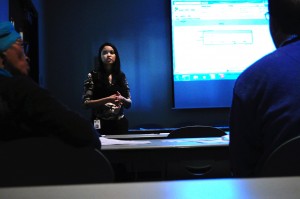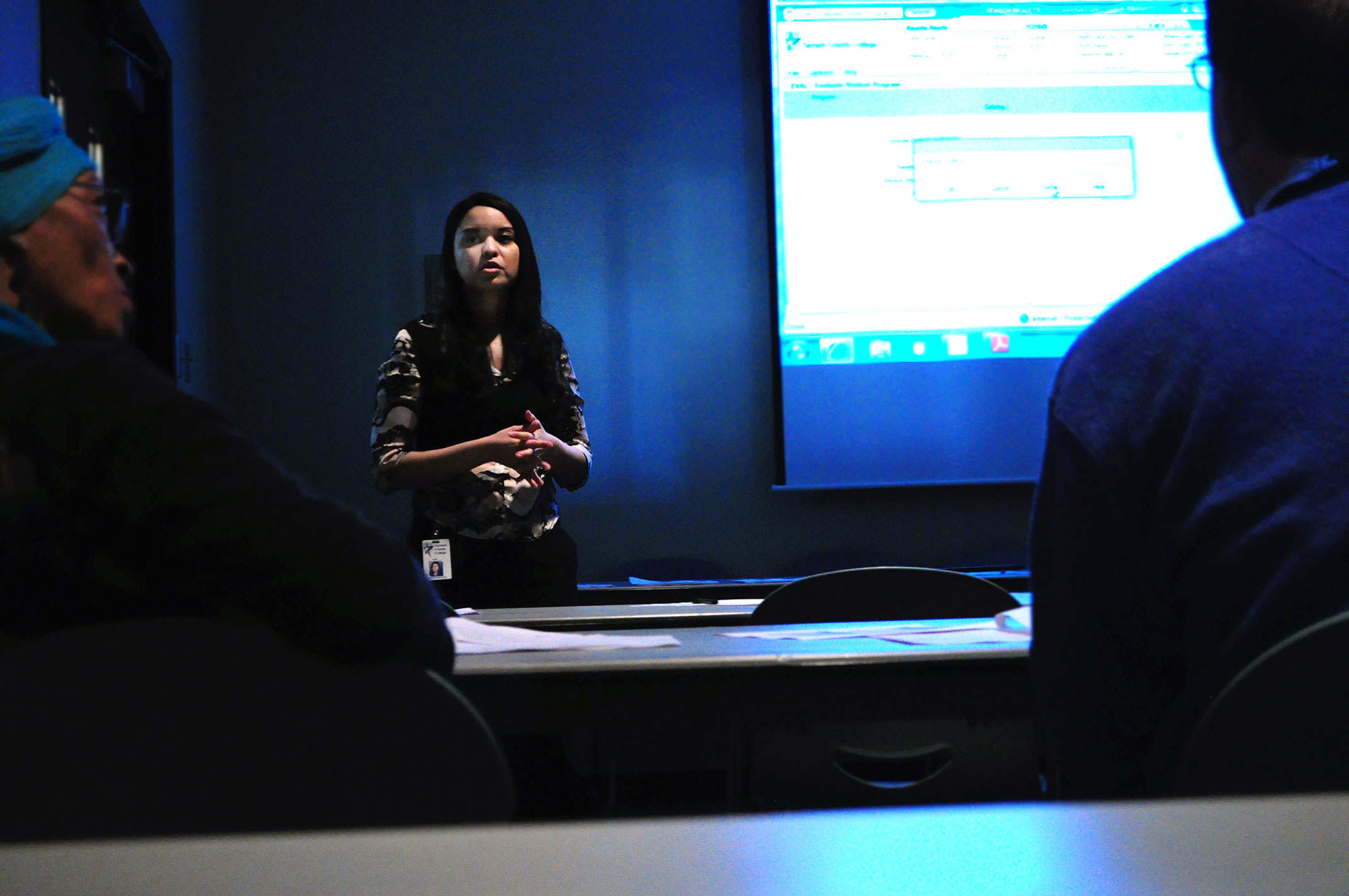
By Karen Gavis/editor-in-chief
Students geared for graduation this spring and who have declared a major will receive congratulatory emails. And TCC’s new graduation specialist is working behind the scenes to identify them.
Although Ami Dominguez has worked in the same office for several years, she began her new role early this year as the college’s lone identifier of potential graduates.
Assistant director of records and reports Vanessa Walker said students are provided a credential they may not have been aware they were entitled to, which can help further their future academic and professional careers.
“Ami’s position is benefiting the college by increasing graduation rates,” she said.
Dominguez said a portion of TCC’s funding will soon depend upon how many students complete their degrees or certificates, and because of a change in policy, students no longer need to apply for graduation.
“We have a lot more graduates in the spring,” she said. ”It’s our bigger semester.”
Currently, TCC has an estimated 2,939 potential graduates, Dominguez said. Of those, she has identified 1,614, and that number should increase if students have not dropped and pass their courses.
”I’m finding them daily,” she said.
At this time, Dominguez said the college is only looking at currently enrolled students. However, there could be former students who have completed but just never applied for graduation.
Originally, administrators wanted to cross-check students with every program available. But because of the large number of students and programs, it could have bogged down TCC’s system.
The identification process occurs at the end of the semester, and Dominguez can only identify those who have declared a major, are currently enrolled and have accumulated at least 58 credit hours, she said. Associate degrees require a completion of 64 credit hours.
The district’s information services department has been working with Dominguez to improve the efficiency of the process.
Application software manager Robert Bauer collected information on what type of reports would be needed to help with processing, and programmer Daniel Lopez modified the existing degree audit program.
The project took about three months, and the program used is a two-step process that creates several reports including students who are complete, anticipated complete, in progress and not started, Bauer said.
“I’m sure it will be a considerable savings of time, as most of the information she needs to verify that a student is ready for graduation is displayed on the reports that are produced,” he said. “We asked Ami to use the program ‘as is’ for a while to see what other changes could be made to enhance her processing for graduates.”
Dominguez said she is also responsible for sending reports to campuses about students who are close to graduating “so our counselors can reach out to these students.”
“The most important thing is to declare a degree program. That’s the biggest thing,” she said. “It is very important when they make that decision or change, that they update that on WebAdvisor.”
Students can update information by visiting the registrar’s office or logging into WebAdvisor and selecting the “update my program” link under the student summary.
Dominguez said steps are being taken to make changes mandating that students declare a major after 15 hours are completed, but that requirement has not been implemented yet.

